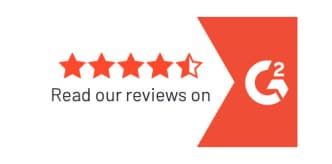401GO’s founders are serial entrepreneurs who, while growing a promising small business, wanted to offer their employees the many benefits of a 401(k) plan — only to discover that the status quo presented impediments serious enough to make it nearly impossible.
The Reality for Small Companies
The challenges were many but three factors stood out:
Complexity: The process of designing a plan involves coordination of many moving parts and getting them into alignment can be very challenging, especially when some decisions impact other variables in ways that are not obvious and difficult to anticipate. The outcome is often many re-starts and frustrated owners discovering they’ve done a lot of work for nothing.
Cost: 401(k) plans carry with them new expenses, including plan administrators, financial advisors, auditors, lawyers and several other ongoing operational costs. For small businesses, these expenses often upset the balance sheet.
Risk: The Employee Retirement Income Security Act (ERISA), IRS and Department of Labor all impose strict regulations on 401(k) plan sponsors, and the consequences of getting it wrong are steep. Lacking dedicated HR and legal departments — as most startups do — makes managing 401(k) regulations both expensive and intimidating.
Three Sensible 401(k) Solutions
One vital function of a financial advisor is to help their clients navigate these challenges. Unfortunately, the economics of financial advising don’t traditionally make this kind of work a high priority when the clients are small businesses. Indeed, according to a study by Nationwide Insurance, only 35% of small businesses use financial advisors, with about half of those saying they either can’t afford or don’t know where to find a good one.
Recognizing this, 401GO’s founders decided to build technology able to solve the plan design complexity problem and in so doing realized they had the foundation of a marketable product with the potential of solving the others — including the financial advisor incentive problem.
401GO makes 401(k) plans for small businesses profitable in a few ways.
First: We don’t charge plan sponsors a setup fee, which gives advisors the opportunity to charge their own and thus see some revenue from the outset. And because 401GO gets plans up and running in about 15 minutes, the amount of time advisors spend on that process — time that’s usually uncompensated — is essentially zero.
Second: The extreme efficiencies our technology realizes keep our costs low, which makes it possible to charge advisors’ clients a discounted rate, giving them an opportunity to add their own fees as well. This establishes an ongoing revenue stream even while assets under management are low.
Third: We handle all advisor invoicing, for free, ensuring on time payment, every month.
Put all these factors together and the 401GO technology makes profitable access to the enormous but underserved small businesses market a real possibility for financial advisors.
Many revolutionary technologies were originally developed by companies trying to solve their own internal operational challenges. Amazon Web Services, Google Ads, Slack, Jira by Atlassian, Shopify and Basecamp are a few examples. All these successful companies have redefined their categories. Now we can add 401GO to that list.



